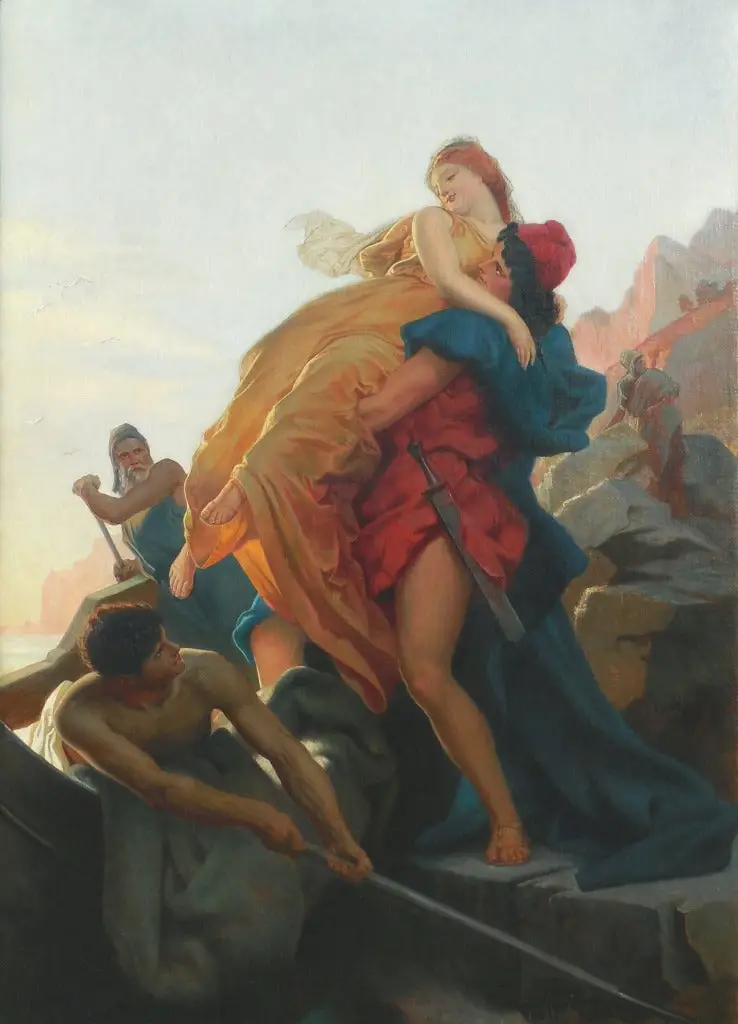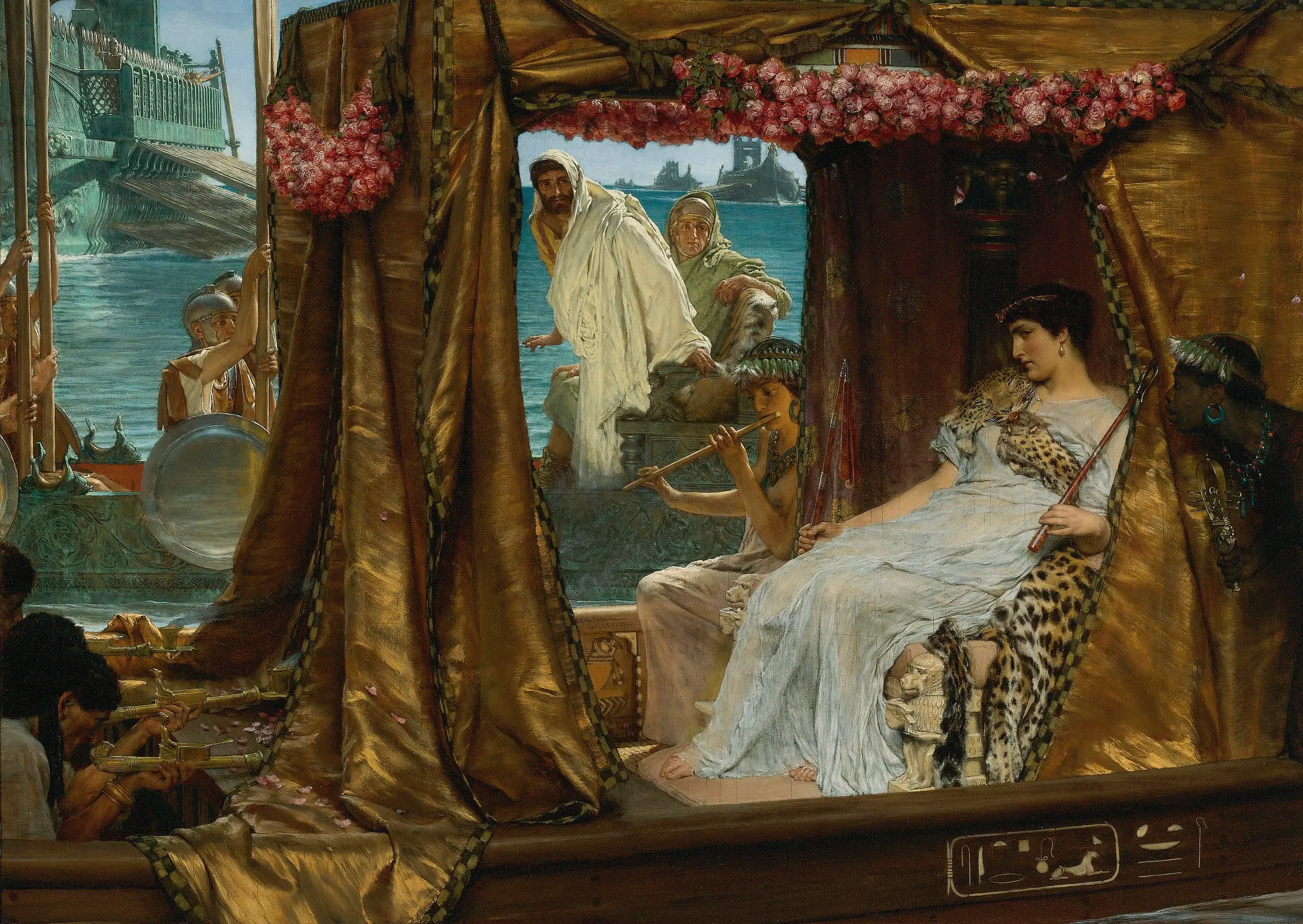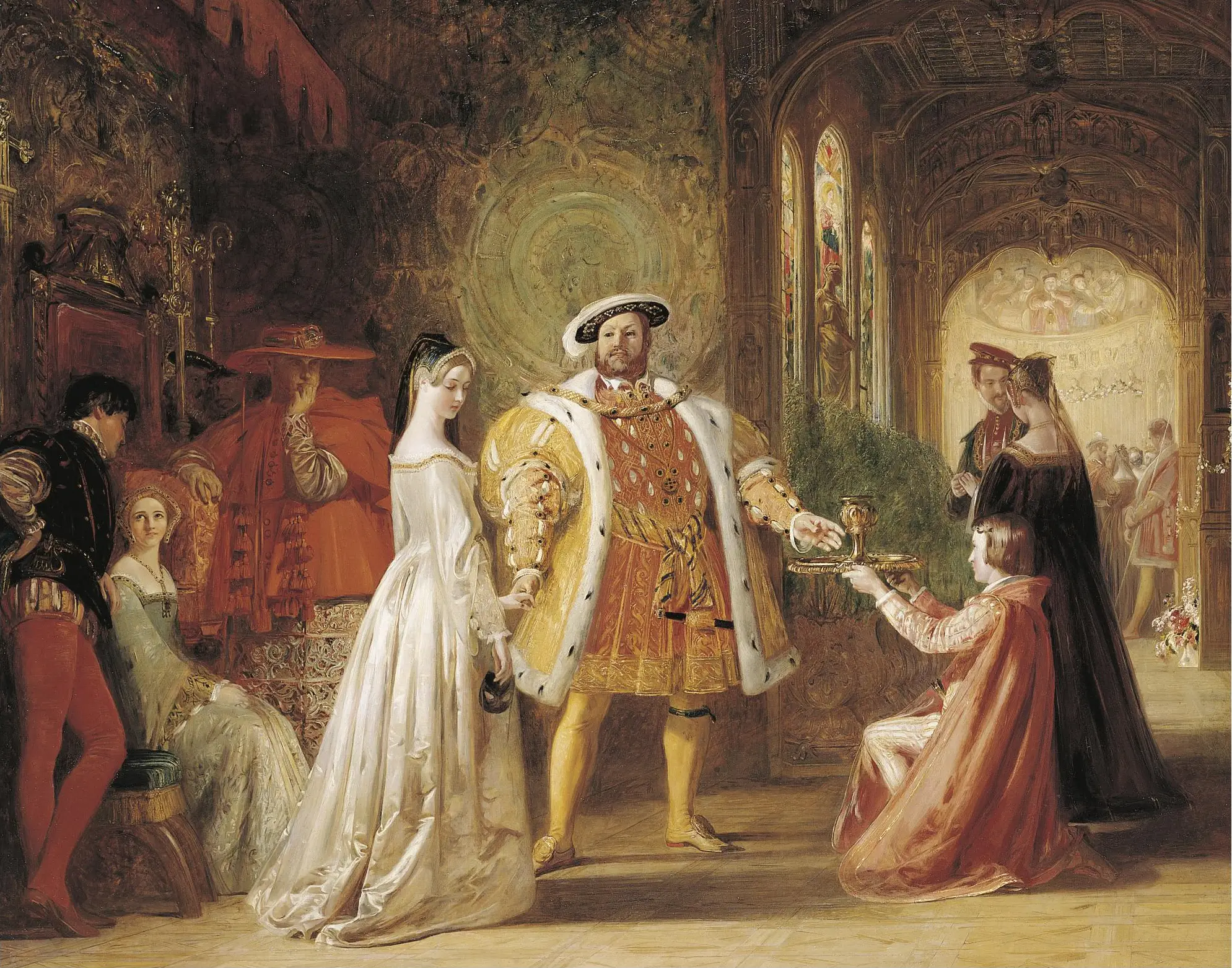Appreciate history's most iconic couples — Paris and Helen, Mark Antony and Cleopatra, Henry VIII and Anne Boleyn — and their timeless tales of love!
{{ vm.tagsGroup }}
14 Feb 2024
6 Min Read
Michelle Lee Shu Ling (Student Writer), Nellie Chan (Editor)
Appreciate history's most iconic couples — Paris and Helen, Mark Antony and Cleopatra, Henry VIII and Anne Boleyn — and their timeless tales of love!
This Valentine's Day, let's you and me go on a date to an 'exhibition' featuring history's greatest love stories. As we wander the gallery hall, you may wonder, 'Who are these illustrious figures, and why should their stories matter to me?' Unlike modern romances that pale in comparison, these stories stand as timeless masterpieces. Within these hallowed walls, we'll learn to appreciate epic narratives intricately woven with the threads of time, each canvas depicting the trials and triumphs of love.
Paris: You don't have to fear tomorrow... come with me!
Helen: Don't play with me, don't play.
Paris: If you come, we'll never be safe. Men will hunt us, the gods will curse us, but I'll love you. Until the day they burn my body, I'll love you.
— Troy (2004)
In Greek mythology, the tale of Helen and Paris intertwines with the legendary conflict of the Trojan War. Helen, celebrated as the most beautiful woman in the world and the wife of King Menelaus of Sparta, was coveted by many suitors. Among them was Paris, son of King Priam of Troy, who, captivated by Helen's unparalleled allure, either seduced or abducted her, depending on the interpretation. (Others say she may have eloped with him.) This audacious act incurred the wrath of Menelaus and the Greek kingdoms, leading to the assembly of a mighty fleet under the leadership of Agamemnon, Menelaus's brother.
The Greek armada set sail for Troy to reclaim Helen and exact revenge, sparking a decade-long war of epic proportions marked by heroic deeds, tragic losses, and divine interventions. Ultimately, the cunning strategy of the Greeks, including the infamous ruse of the Trojan Horse, led to the downfall of Troy and the fulfilment of the prophecy foretold by the gods.
MARK ANTONY
Let Rome in Tiber melt, and the wide arch
Of the ranged empire fall! Here is my space.
— Antony and Cleopatra (1606-07), Act 1, Scene 1
Mark Antony, a Roman general, and Cleopatra, the Egyptian queen, first crossed paths in 51 BC when she served as the mistress of his mentor, Julius Caesar, birthing a son named Caesarion. Their paths crossed again in 41 BC, a decade after their initial encounter, during Antony's stay in Tarsus. Cleopatra, aware of Antony's love of spectacle – and of Rome's interest in her riches – orchestrated a grand entrance that had him '[lose] his head to her like a young man'. The queen also threw extravagant parties and dinners for the Romans and flaunted her fortunes; Antony sought to match her magnificence but fell short.
Their attraction, though genuine, was also politically strategic, with Antony relying on Cleopatra to fund his military endeavours in the East while Cleopatra relied on him for protection and power for herself and her son, Caesarion. Together, they journeyed to Alexandria, where they indulged in a hedonistic lifestyle, forming a drinking society known as the Society of the Inimitable Livers.
Antony's return to Rome and subsequent marriage to Octavia did little to diminish his bond with Cleopatra, who bore him twins in his absence. Their reunion in Antioch marked the beginning of a tumultuous period characterised by military setbacks and Antony's declining wealth. Despite his triumph in conquering the kingdom of Armenia, Antony's provocative actions, including the infamous Donations of Alexandria, distributing lands to his and Cleopatra's children, strained relations with Octavian, leading to the dissolution of the Triumvirate and the declaration of war against Cleopatra.
As Octavian's forces closed in on Alexandria, Antony and Cleopatra defiantly continued their decadent parties, although they now called their drinking society Companions to the Death. Sensing Antony's impending downfall, Cleopatra staged her own death to spare him from Octavian's wrath. After Antony's subsequent suicide in despair over Cleopatra's supposed demise, she engaged in futile negotiations with Octavian before taking her own life.
With Cleopatra's passing, Egypt became part of the Roman Empire, and her children faced uncertain futures. Octavian eradicated traces of their once-mighty reign but honoured Cleopatra's final wish by allowing her and Antony to be buried together.
[...] I am come hither to accuse no man, nor to speak anything of that, whereof I am accused and condemned to die, but I pray God save the king and send him long to reign over you, for a gentler nor a more merciful prince was there never [...]
― Anne Boleyn
Anne Boleyn, born around 1500, belonged to a prestigious lineage. Her father, Sir Thomas Boleyn, was a respected courtier, while her mother, Elizabeth Howard, was the daughter of Sir Thomas Howard, the 2nd Duke of Norfolk, one of the most powerful men in the country. By 1522, Anne had returned to England from France, where she and her sister Mary became ladies-in-waiting to Henry VIII's first wife, Catherine of Aragon. Henry's initial encounter with Anne likely occurred that year when she took one of the lead roles, 'Perseverance', in a court masque at Thomas Wolsey's Whitehall residence.
Henry's interest in Anne intensified in 1526, as he sought a male heir to secure the future of the Tudor dynasty. Anne, either driven by ambition or influenced by her scheming relatives, rejected the role of royal mistress and held out for marriage. Their courtship, which began in 1526, culminated in marriage in January 1533, despite the technicality of Henry's existing marriage to Catherine.
Anne's coronation as queen in June 1533 marked a triumphant moment, even as she was pregnant at the time. Their first child, who would later become Elizabeth I, was born later that year. However, subsequent miscarriages in 1534 and 1536 strained their relationship, leading Henry to explore other options.
In 1536, Anne's downfall was orchestrated by Thomas Cromwell, who accused her of adultery and treason, resulting in her arrest, trial, and imprisonment at the Tower of London. On May 19th, Anne was beheaded on Tower Green. She maintained her innocence until the end, yet expressed a prayer for the King's welfare and perhaps her daughter's safety.
As our stroll through this gallery of history's greatest love stories nears its end, have you found yourself captivated by one in particular? For me, the narrative of Mark Antony and Cleopatra shines brightest, illuminating the enduring power of love and loyalty that persists even beyond the canvas of life. So, let's part ways from this date with a newfound appreciation for these iconic couples, who stand as masterpieces in the grand exhibit of love's profound significance and its lasting legacy across time.
Happy Valentine's Day!
Michelle Lee Shu Ling is currently pursuing a Bachelor of Laws (Honours) at Taylor’s University. When she’s not serving as President of Taylor’s Lakeside Model United Nations (TLMUN) Club or Editor-In-Chief of Taylor’s Lexicon Editorial Board, she writes!


